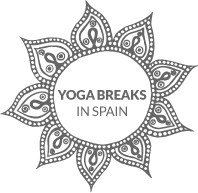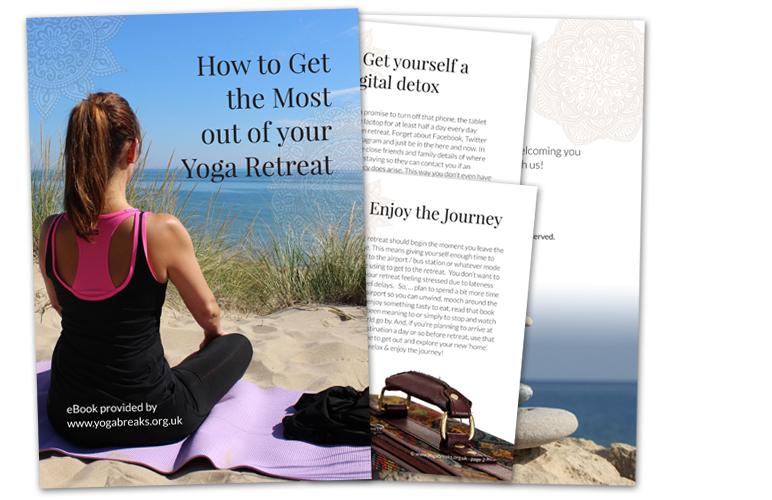
Most of the time we don’t pay any attention to breathing – it just happens. This kind of breathing is keeping us alive but, conscious controlled breathing – or Breathwork – goes much deeper than this.
Breathwork is the intentional manipulation of your breath
and can deliver powerful & positive effects to your body, mind, immune system, blood pressure & energy.
In this blog we’d like to :
1. Help you improve how you breathe in everyday life
2. Explain the key benefits of Breathwork
3. Share useful Breathwork resources to help you begin or expand your breathwork practice
So, let’s begin ….
Most people get their first taste of breathwork in a yoga or meditation class. There are various traditional yoga breathing practices all referred to as pranayama.
However, more recently, breathwork has gained rapid popularity beyond yoga classes because of the powerful impact it has on our mental, emotional & physical health.
Even simple practices create noticeable results quickly.
If you’re new to breathwork, we absolutely recommend you read James Nestor’s book : “Breath – the New Science of a Lost Art”. It’s a quick & easy read & a real eye-opener – you’ll most likely never want to breathe through your mouth again! If you don’t have time to read his book, look him up on YouTube & you’ll find several of his interviews.

1. How to Breathe in everyday Life
a) Breathe in (& ideally, out) through your nose. Why the nose & not the mouth?
- Fine nasal hairs trap dust particles before the air enters the lungs. And, if the hairs don’t catch it all, there’s a sticky surface in the lining of the nose designed to catch finer dust and germs before entering the lungs.
- Inhaling through the nose triggers the production of Nitric Oxide (NO) in the paranasal sinuses. NO is super important to the body for many functions but particularly, it widens our blood vessels & increases the absorption of oxygen into the cells of the body & brain by up to 20%. Who doesn’t want more oxygen entering their cells?!
- Nasal breathing warms & moistens the air before it enters your body. Ever cough when you breathe through the mouth on a cold day? That’s because the air is too cold for the lungs.
- Nose breathing slows the breath down which gives more time for the exchange of gases to take place in the lungs .. thus increasing the volume of oxygen passing into the bloodstream from the lungs but also, slower breathing calms the nervous system.
b) Take slower, deeper breaths into the base of the lungs. Why?
- There are more air sacs (alveoli) in the base of the lungs. So, by drawing breath to the base of the lungs, a greater volume of oxygen enters the body via the alveoli. We might only have a second for the exchange of gases to take place before we exhale so if we breathe mainly in the upper chest, oxygen absorption will be less.
c) Expand your ribs sideways, front & back on the inhale. Why?
- Expanding the lungs 360 on an inbreath engages the diaphragm & intercostal muscles. These are 2 super important breathing muscles which aren’t used if you’re an upper chest breather. A deep 360 inhale allows the diaphragm to extend downwards which creates a greater space within the lungs for gas exchange to take place. The intercostal muscles are there to help expand the ribs on an inbreath and close the ribs on the out breath. Use them!
2. Benefits of Breathwork
Apart from the benefits already mentioned, breathwork benefits the body by ..
a) Reducing Stress & Anxiety – quickly. A study published in the journal ‘Frontiers in Psychology’ found that participants who completed 20 breathwork sessions over eight weeks had significantly lower levels of the stress hormone cortisol compared to those who did no breathwork. Cortisol is responsible for the body’s stress response, high levels of it can cause chronic inflammation.
You don’t have to do 20 sessions of breathwork before stress levels reduce. Just a few moments of slow, deep breaths reduces the bodies natural ‘fight or flight’ reaction.
b) Reduces high blood pressure. A 2015 survey noticed that people with hypertension saw a big drop in blood pressure – without any adverse effects – after practicing slow, deep breathing.
c) Helps sharpen attention & focus. A 2018 study published by Trinity College Dublin found that controlled breathing “directly affects the levels of a natural chemical messenger in the brain called noradrenaline. This chemical messenger is released when we are challenged, curious, exercised, focused or emotionally aroused, and, if produced at the right levels, helps the brain grow new connections, like a brain fertiliser. The way we breathe, in other words, directly affects the chemistry of our brains in a way that can enhance our attention and improve our brain health.”
d) Boosts Immunity & Increases Energy. Breathwork draws more oxygen into our cells which in turn gives us the energy to be more active which can prompt a more active lifestyle.
e) Improves Sleep. Breathwork, as we know, calms the body & mind by triggering the parasympathetic ‘rest & digest’ side of the nervous system. Therefore, conscious breathwork before bed can help calm the body & quieten the mind in preparation for a profound night’s sleep.
f) Boosts immunity & helps eliminate Chronic Pain. Slow deep breathing helps lower the acidity levels (PH) in the body and, as many illnesses are borne from having high acidic levels, reducing our PH can help eliminate some of these high-risk diseases.
In addition, slow deep breathing releases ‘feel good’ endorphins. Endorphins not only help lower stress levels but help to reduce the perception of pain thus helping people better cope with their discomfort.
3. Useful Breathwork Resources
Insight Timer App.
Fantastic source of multiple & varied breathwork practices, guided meditations, challenges & audio yoga classes all professionally created so expect high quality audio & teachers. Insight Timer is free to use but they also have a premium paid service allowing you to access even more courses, challenges & classes.
Flourish App.
A new-ish one to us so we’ve not fully explored it yet but we’ve heard great things. From what we can gather, this app just offers breathwork practices but can help energise, calm, boost immune system & promote healing. What’s not to like?!
Breathwrk App (yes, this is how it’s spelt – without the ‘o’ in work)
They claim to be the World’s largest library of breathing exercises including techniques used by Olympic athletes, sleep specialists, neuroscientists, navy seals & psychotherapists.
Other posts you may like:

